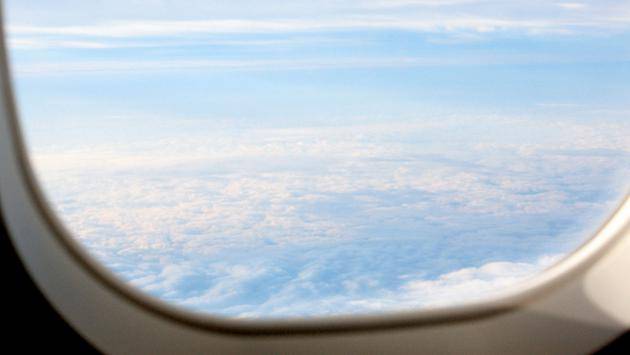Over the summer, I took the chance of traveling to Europe to see the changes that have taken place, in order to better advise my clients who ask me whether travel is possible.

Overall, Europe looked similar to the old normal, with the exception of masks and social distancing being enforced.
New Digital Aspects of the Travel Industry
The COVID-19 pandemic has pushed the industry to really focus on going digital beyond online check-in and mobile boarding passes. At the airport, I was able to print my luggage tag through the kiosk, and then drop it off at the touch-free bag service. Therefore, one can simply check-in for a flight with no human interaction.
Hotels have also been stepping up their online check-in features. While not as common as airline travel, some hotel chains do have the option of checking in and selecting your room through your mobile device the day prior to arrival. A prime example is Hilton. Other than checking in, the app shows upgrade options and any valuable information on hotel services. And once you check-in, the hotel offers a digital key, allowing guests to bypass the front desk.
Other hotels may not allow the option of choosing the room, but the industry is getting there. I stayed at several Accor-branded hotels and did not have that option. However, the need for paperwork at the front desk was eliminated and my key was ready at the front desk when I arrived, which saved time.
The Need for Advance Bookings is on the Rise
Most tourist attractions allow the option of buying your ticket prior to arrival and offer skip-the-line tickets for an additional fee. With the need for social distancing, attractions now have limited capacity and encourage advance purchase for a specific entry time. As an example, I was in Utrecht, Holland, looking to visit the nearby De Haar Castle. It was 08:30 when I was looking online, and the first available entry time was 14:45. Therefore, if I had simply made my way there, I would’ve wasted time getting there only to be told to come back in the afternoon.
New Measures Taken by Airlines
Airlines were the first companies in the travel industry to adapt to the new normal. As many sources have indicated, there has been almost no transmission of COVID-19 from planes. A flight attendant on KLM told me that the HEPA filters which airlines have installed run air through and filter out 99.9% of bacteria and other virus clumps, preventing contamination or an unsafe atmosphere. The air passes through the filters every 2-3 minutes.
Airlines are also providing kits which include a mask, hand sanitizer and gloves, among other things which vary by airline. Some airlines are not serving meals on shorter flights within the continent. The transatlantic flights I flew provided regular meal service as I am used to.
A shocking new normal is many airlines eliminating in-flight magazines. It is said that this is only temporary until a vaccine is found. Some airlines, however, are making these magazines electronic. Air France offers the magazine through a special app called Air France Play. Once you download the magazine to the app, it stays there even after the end of the flight. I’ve also seen some airlines add a digital press section on their website. The passenger can log in 24-72 hours prior to departure and download the airline magazine, among others.
New Measures Taken by Hotels
Hotels have sacrificed a lot to help increase consumer confidence. Many hotels will “quarantine the room” for 3-5 days after a guest checks out. In other words, after the guest leaves and the room gets cleaned, no one can have it for the specified period, which varies by hotel, in order to allow potential germs to disappear. This is a huge sacrifice on the company’s end, which shows they really care to ensure guests feel safe staying there.
Plexiglass shields have been installed at the front desk in order to keep the distance between staff and guests. Hand sanitizer is present throughout hotels, including in the elevators. And masks are required in all public areas of hotels.
Many independent hotels that do not offer an online check-in option will provide the guest with a questionnaire to confirm if the guest could possibly have been exposed to COVID-19 in the last 14 days.
Travel Agents Now Have the Opportunity to Shine Even More
Many clients will simply ask for flights and hotels to a popular destination. Once there, they know they can simply hop between attractions using the city’s hop-on-hop-off buses. I always tell my clients that if they want to visit a worldwide popular attraction, they must buy skip-the-line tickets. However, those do not bring a lot of profit, and it’s a lot of work booking all of them separately. Looking at point #2 regarding the need for advance bookings, it is now time for travel agents to mention that to clients.
This can sound overwhelming to the clients, who will then be attracted to book through the one agent who they see has great knowledge and is willing to help facilitate their trip. This also looks like an increasing number of travelers will try not to mind the price on a guided tour. And for those that do, or for agents who enjoy selling FITs, this is an opportunity to show the true value and book clients more than just flights and hotels, leading to increased profits.
The skies are opening more and more, and airlines continue to reinstate their suspended routes. Traveling to Europe during the pandemic definitely had its perks. It was very interesting for me to observe and immerse myself in the new normal. From social distancing measures to experiences made easy through technology, there are signs everywhere that the travel industry will emerge stronger than ever.
Leave a Comment